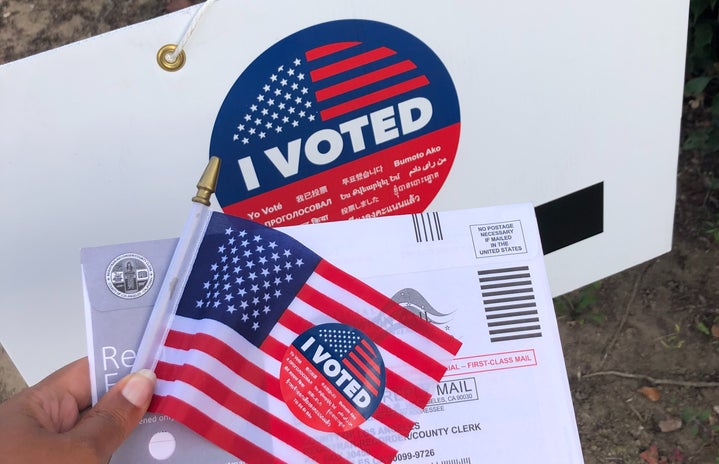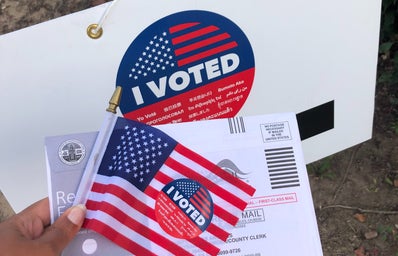John Fetterman does not look like your ordinary politician. Defined by his tall statue, tattoos and his rolled sweatshirt sleeves and cargo shorts, the rise to his current U.S. Senate race is both archetypal American and individually unique.
Fetterman grew up in York, Pennsylvania, to teenage parents. He describes “having a contented middle-class childhood.” He attended Albright College where he played both defensive and offensive tackle for the Lions. He was on a business path just like his father. Until, two life-changing events altered his course. Fetterman’s 27-year-old best friend died in a car crash on the way to pick him up for the gym. This event reframed his look on life and pushed him to invest in the Big Brothers/Big Sisters program, the second life-altering event.
His “little,” Nicky Santana, was an 8-year-old boy who had recently lost his father to AIDS and had a mother who was terminally ill with the same disease. Fetterman’s experience with Santana took him out of his comfortable office job in insurance and led him to become a social worker.
“It opened up an entire realm of inequality that I never really fully understood existed, and how pervasive it was,” Fetterman said to the Post Gazette. “I couldn’t overcome being preoccupied with the random lottery of birth. I thought about my own childhood, and how I’d ended up with an MBA and security and freedom and flexibility, and how this poor little boy lost both his parents before his ninth birthday.”
Fetterman threw himself into public service and took an AmeriCorps service job with the Hill House Association in Pittsburg. He set up a GED program and computer labs for learners in the neighborhood. With the help of his time in AmeriCorps, he spent the next two years getting his master’s degree in Public Policy from Harvard’s Kennedy School of Government.
He went back to Pennsylvania and set up a GED program in Braddock, a town in the eastern suburbs of Pittsburgh. After raising this program from the ground up, Fetterman ran for mayor in 2005 and won the primary by one vote. He served as mayor of Braddock from 2006 to 2019 before his role as lieutenant governor of Pennsylvania with Gov. Tom Wolf.
Fetterman has always run a progressive campaign and administration, pushing for issues like LGBTQ+ and immigration justice from his beginnings. His self-proclaimed biggest accomplishment is stabilizing the population of Braddock and breaking the cycle of violence going five and a half years without a homicide. The tattoos on his forearms, the Braddock zip code and the nine dates that someone violently died while he served as mayor, are constant reminders.
Now, Fetterman is running for Pennsylvania’s U.S. Senate seat against television personality Dr. Mehmet Oz. Despite the back and forth about personal political opinions, everyone cannot seem to stop talking about Fetterman’s stroke.
In May, just days before the primary election for this very race, Fetterman suffered an ischemic stroke. As opposed to a hemorrhagic stroke, an ischemic stroke occurs when a blood clot blocks a blood vessel from carrying oxygen to the brain. Despite easily winning the Democratic nomination from his hospital room and getting back on the campaign trail, Fetterman is still recovering.
Strokes are a traumatic and significant health condition. Just seconds without oxygen can have lasting effects that heal with time and hard work as the brain continues to recover and repair.
The side effects he still faces five months post-stroke are primarily auditory processing and mild aphasia, or finding or pronouncing the right words. Meaning, Fetterman is not able to hear each word clearly, in comparison to his pre-stroke abilities, making noise-busy environments difficult to decipher. It is for this reason that he requested closed captioning technology for the debate on Oct. 25. Given how recent his stroke was in combination with the extreme nature of strokes, it is impressive that Fetterman is even on the debate stage to begin with. What he and his family went through was a life or death situation.
Through the fog of the media, people demanding Fetterman’s health records and criticizing his debating skills ignore key aspects of the conversation about being a human and politician in our American system.
A disability, mental fortitude and adversity are not unique to just Fetterman but to the fabric of American politics. It is the grit and the come back stories that make candidates and campaigns so compelling. It is a struggle so uniquely American that molds them into relatable and desirable candidates.
John Fetterman’s stroke, while inhibiting some processing functions, has not decayed his intellectual abilities. Disabilities may change appearances and present additional challenges that able-bodied individuals do not face, but it does not inherently disqualify somebody as fit for office or make them less intelligent as a result.
From President Franklin D. Roosevelt’s recovery from polio to Rep. Tammy Duckworth (D-IL) surviving an attack on her Blackhawk helicopter while serving in the Iraq War, disabilities are not unusual in American politics. FDR became President and then Captain Duckworth became Assistant Secretary of Veterans Affairs in the Obama administration, a U.S. representative, and now a glass-shattering U.S. Senator. Also demonstrating that disabilities do not discount someone from fulfilling their duties to their country.
If anything, Fetterman’s stroke puts him more in touch with stroke survivors and the struggles of America’s relationship with the healthcare system. It makes him human.
There is no one, all-defining version of what it means to be a citizen of this country. But, through his political career and personal challenges, Fetterman understands America on a level that his opponent does not. His story, journey and family is one of American dreams and hardships. He claims he doesn’t look or talk like your typical politician, but deep down, Fetterman is America.


